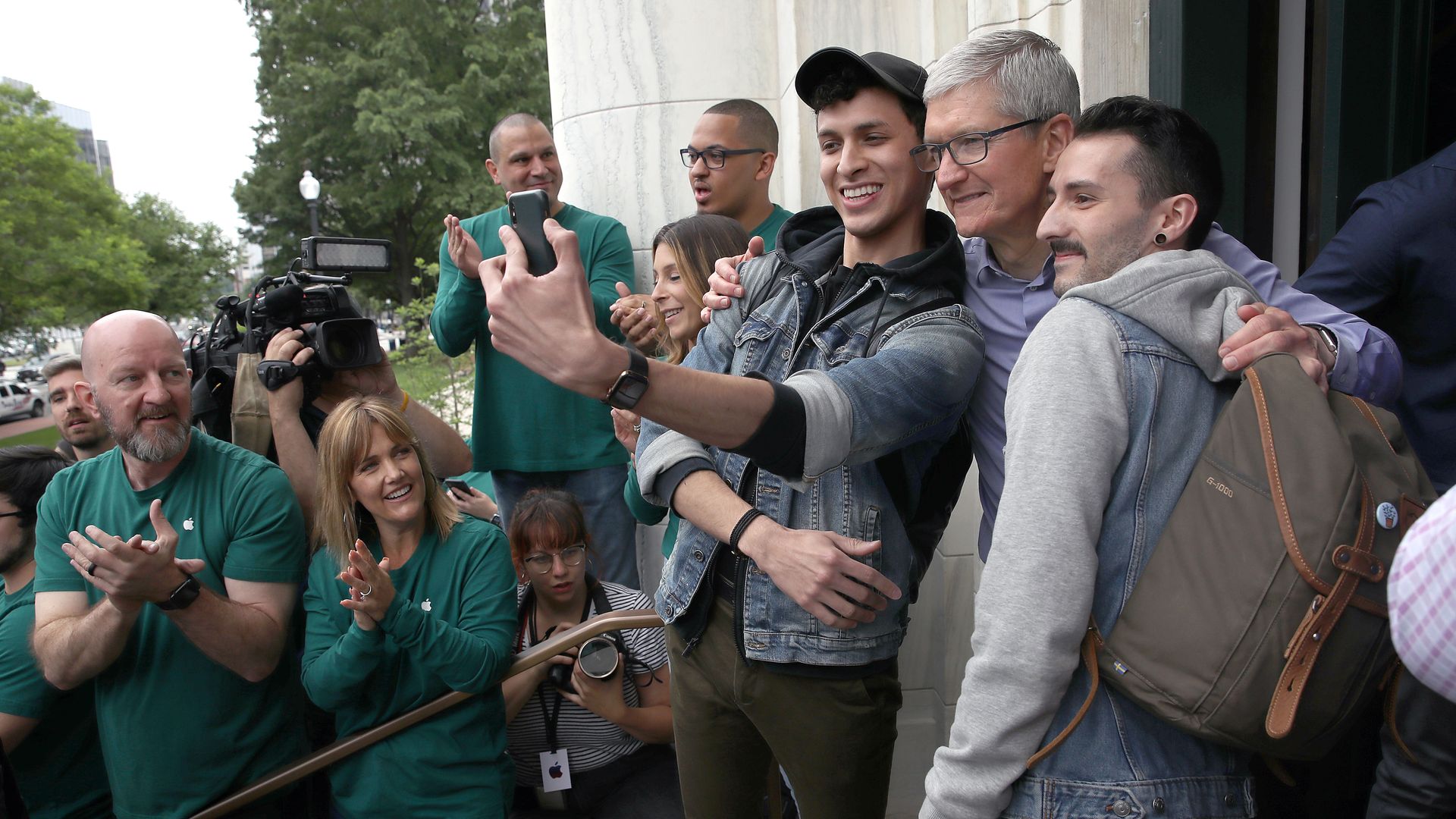May 13, 2019 - Technology
Supreme Court lets App Store monopoly suit go forward
Add Axios as your preferred source to
see more of our stories on Google.

Apple CEO Tim Cook takes a selfie this weekend. Photo: Win McNamee/Getty Images
Add Axios as your preferred source to
see more of our stories on Google.

Apple CEO Tim Cook takes a selfie this weekend. Photo: Win McNamee/Getty Images